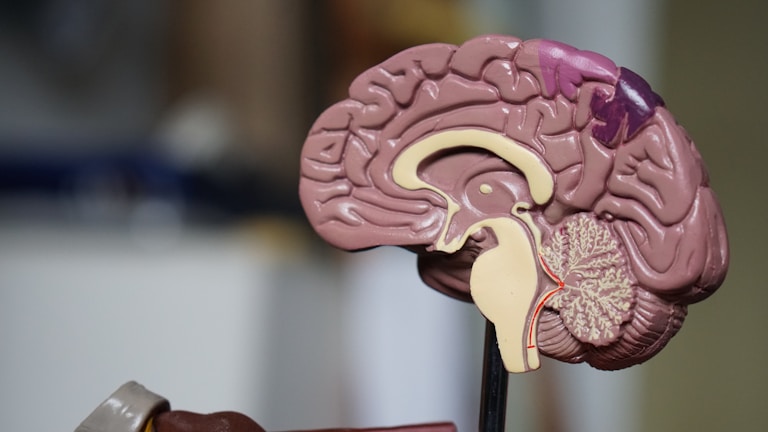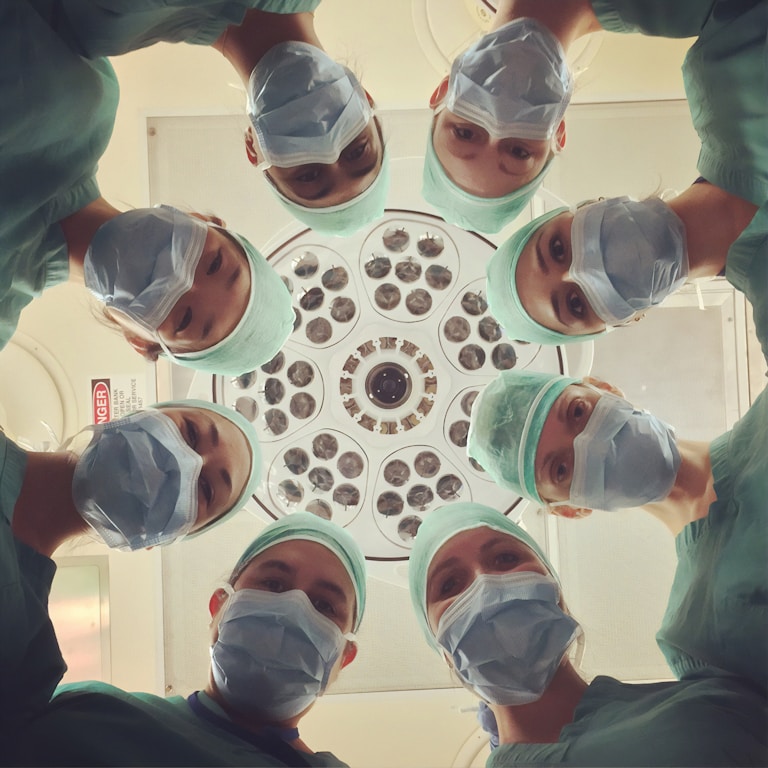
Diagnostic Errors
Protecting California Patients from Misdiagnosis and Delayed Diagnosis
When Diagnostic Errors Harm California Patients
Diagnostic errors represent the leading cause of medical malpractice claims in California, affecting thousands of patients annually across the state's extensive healthcare system. From emergency departments in Los Angeles to primary care clinics in rural counties, these errors range from complete misdiagnosis to dangerous delays in identifying serious conditions. When healthcare providers fail to accurately diagnose medical conditions, patients suffer preventable harm that can alter their lives forever.
Understanding Diagnostic Errors in Healthcare
Diagnostic errors encompass a broad spectrum of failures in the diagnostic process, including missed diagnoses, wrong diagnoses, and delayed diagnoses that result in patient harm. In California's complex healthcare environment, these errors often stem from cognitive biases, inadequate testing, poor communication between providers, or failure to consider differential diagnoses. The consequences can be devastating when serious conditions like cancer, heart attacks, strokes, or infections go unrecognized or misidentified.
Modern diagnostic challenges in California include overcrowded emergency departments, rushed appointment schedules, and fragmented care across multiple providers and health systems. Electronic health records that don't effectively communicate between institutions can lead to missed information crucial for accurate diagnosis. When physicians fail to obtain adequate patient histories, order appropriate tests, or properly interpret diagnostic results, patients pay the price with delayed treatment and worsened outcomes.
California's Legal Framework for Diagnostic Error Claims
California law recognizes diagnostic errors as a form of medical malpractice when healthcare providers fail to meet the standard of care in diagnosing patient conditions. Under California's medical malpractice statutes, physicians and other healthcare providers have a duty to exercise the degree of care, skill, and diligence that other reasonably careful practitioners would use under similar circumstances. This includes conducting appropriate examinations, ordering necessary tests, and making timely and accurate diagnoses.
The statute of limitations for diagnostic error claims in California is one year from discovery of the injury or three years from the date of injury, whichever occurs first. California's Medical Injury Compensation Reform Act (MICRA) currently caps non-economic damages at $390,000, though this cap is scheduled to increase significantly over the next decade. Economic damages, including additional medical expenses and lost income resulting from diagnostic errors, remain unlimited.
Establishing Liability in Diagnostic Error Cases
Proving a diagnostic error claim requires demonstrating that the healthcare provider's diagnostic process fell below the accepted standard of care and that this failure caused patient harm. This often involves showing that a competent physician in similar circumstances would have reached the correct diagnosis or initiated appropriate testing. Expert medical testimony is typically essential to establish what a reasonable physician should have done and how the defendant's actions differed from this standard.
California courts recognize that not every misdiagnosis constitutes malpractice. Physicians are not required to be perfect, but they must follow reasonable diagnostic procedures. The key question is whether the physician's diagnostic approach was reasonable given the patient's presentation and available information. When physicians fail to consider obvious diagnoses, ignore clear symptoms, or skip necessary tests, they may be liable for resulting patient harm.
Types of Common Diagnostic Errors in California
Certain diagnostic errors occur more frequently in California healthcare settings, often with serious consequences. Cancer misdiagnosis or delayed diagnosis cases are particularly common, especially for breast cancer, lung cancer, and colorectal cancer where early detection significantly impacts prognosis. Heart attack misdiagnosis in emergency departments, particularly for women and younger patients, represents another frequent source of malpractice claims.
Stroke misdiagnosis can have devastating consequences when patients lose critical treatment windows. Infection misdiagnosis, including sepsis and meningitis, often results in severe complications or death when appropriate antibiotic treatment is delayed. Emergency department diagnostic errors are especially problematic given the time-sensitive nature of many conditions and the pressure to see numerous patients quickly.
Compensation for Diagnostic Error Victims
California victims of diagnostic errors may recover substantial compensation for their injuries. Economic damages include the cost of additional medical treatment required due to the delayed or incorrect diagnosis, lost wages during extended recovery periods, and reduced future earning capacity when the error results in permanent disability. These damages can be significant when delayed diagnosis leads to more invasive treatments or worse long-term outcomes.
Non-economic damages compensate for the pain, suffering, and diminished quality of life resulting from diagnostic errors. While currently capped under MICRA, these damages recognize the emotional distress and life changes that often accompany delayed or missed diagnoses. The fear, anxiety, and loss of trust in medical providers that victims experience are legitimate aspects of their injury that deserve compensation.
The Role of Technology and System Failures
California healthcare systems increasingly rely on diagnostic technology, but these tools are only as good as the providers who use them. Radiologists who misread imaging studies, pathologists who misinterpret tissue samples, and physicians who fail to follow up on abnormal test results can all contribute to diagnostic errors. When healthcare institutions fail to implement adequate quality control measures or provide proper training on diagnostic equipment, they may share liability for resulting patient injuries.
Electronic health records and diagnostic decision support systems can help prevent errors but may also create new risks when providers become overly reliant on technology or when systems fail to properly integrate patient information. California law recognizes that healthcare institutions have a duty to implement and maintain adequate diagnostic protocols and quality assurance measures.
Taking Action After a Suspected Diagnostic Error
If you believe you've been harmed by a diagnostic error in California, prompt action is essential for protecting both your health and legal rights. Continue seeking appropriate medical care from qualified providers to address your actual condition, but also begin gathering documentation about the diagnostic error. Obtain copies of all medical records, test results, and imaging studies related to your care. Request records from all providers involved in your diagnosis.
Keep detailed records of your symptoms and how the diagnostic error has affected your life. Avoid signing any documents or speaking with hospital representatives without legal counsel. California healthcare institutions often have risk management programs designed to minimize their liability exposure, but these may not provide adequate compensation for serious injuries caused by diagnostic errors.
Why Expert Legal Representation is Essential
Diagnostic error cases involve complex medical issues that require extensive knowledge of medical standards, diagnostic procedures, and healthcare operations. Determining whether a diagnostic error rises to the level of malpractice requires careful analysis of medical literature, professional guidelines, and expert medical opinion. Experienced attorneys understand how to obtain and analyze medical records, identify all potentially liable parties, and work with medical experts to build compelling cases.
The defendants in diagnostic error cases typically have substantial resources and experienced legal teams. Healthcare providers and institutions will often argue that their diagnostic decisions were reasonable given the available information, making expert testimony crucial for demonstrating how the standard of care was breached. Having skilled legal representation ensures your case receives the thorough investigation and professional presentation necessary for success.
Frequently Asked Questions
How long do I have to file a diagnostic error claim in California?
California requires diagnostic error claims to be filed within one year of discovering the injury or three years from the date of injury, whichever comes first. The discovery rule may extend this period when the error was not immediately apparent.
What must I prove to win a diagnostic error case in California?
You must prove that the healthcare provider failed to meet the standard of care in diagnosing your condition and that this failure caused additional harm. Expert medical testimony is typically required to establish what a reasonable physician should have done.
Are there damage caps for diagnostic error cases in California?
Non-economic damages (pain and suffering) are currently capped at $390,000 under MICRA, but this amount will increase substantially over the next decade. Economic damages like medical expenses and lost wages are not capped.
Can I sue for a delayed diagnosis even if I eventually got the right treatment?
Yes, if the delayed diagnosis caused additional harm, such as allowing a condition to progress, requiring more invasive treatment, or reducing your chances of recovery. The delay must have caused measurable damage to have a valid claim.
Browse Articles for "Diagnostic Errors" in California:
Start Your FREE Consultation
Complete the form for a Free Consultation. No upfront fees, swift action, and we’re only paid when we succeed for you.
Ask Us If You Qualify
We’re here to help you take on your fight—whether it’s a car accident, a dangerous drug, or a workplace injury gone wrong. One call starts it all, and we’re with you every step, no upfront cost required.
- Free Case Review
- No Fees Until Victory
- Millions Recovered
- Personal Strategy
- California Coverage
- Relentless Case Pursuit

